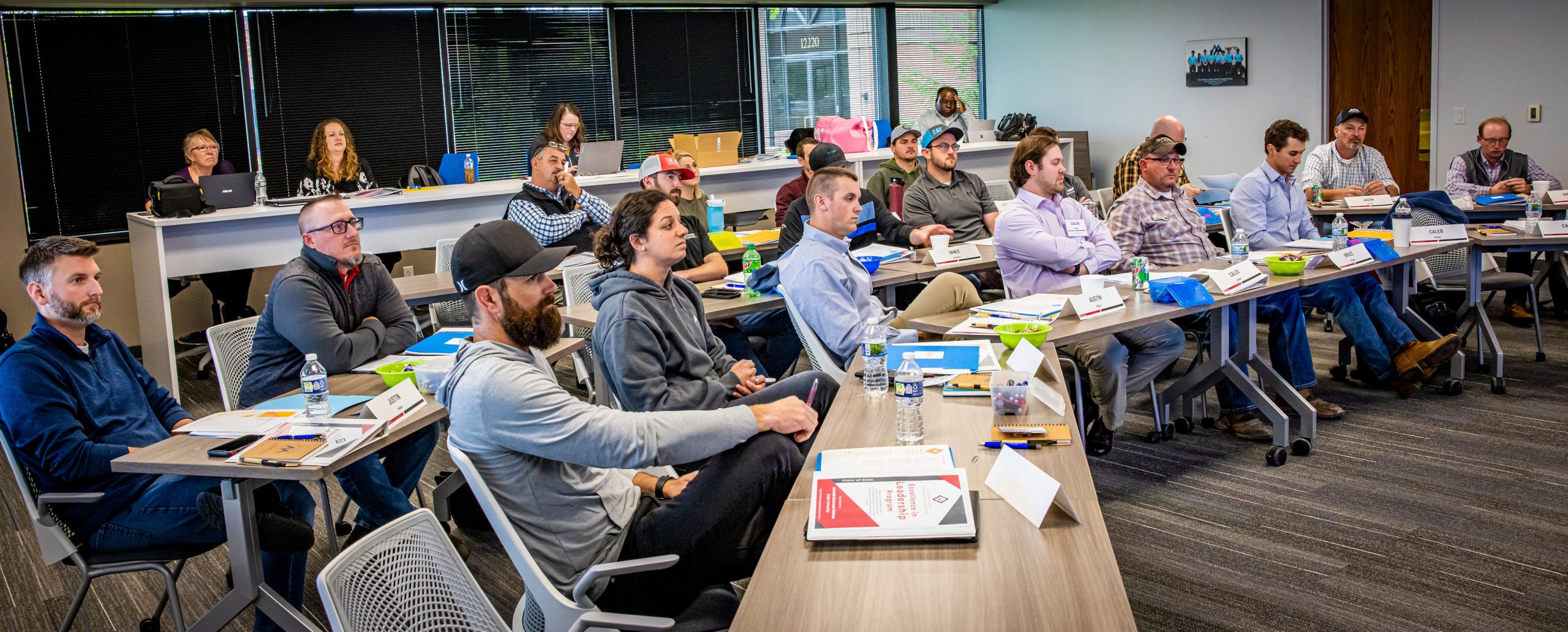News
Excellence in Leadership Program – Class of 2023
In April and July of this year, 23 students from 10 IMAA member companies and one student from INDOT came together for sessions in the Excellence in Leadership (ELP) training program — designed by IMAA members for IMAA members. The WLMA Committee and Professional Development Committee have partnered to produce a learning program to equip emerging leaders with skills, knowledge, confidence, and connections to lead their teams and organizations, both now and in the future. The program focuses on three key areas of development:
- Technical knowledge
- Strategic insight
- Leadership skills
With two more sessions to go, in late October and at the 2024 Winter Workshops, students focused earlier this year on choosing six Action Learning Projects, which the class will present in six separate groups to the IMAA Board on February 5 during the Winter Workshops, prior to graduation. The topics were chosen by the students from a total of 14 topics, based around research published in the American Society of Association Executives (ASAE) Foresightworks “Drivers of Change.” The six topics chosen by the class include:
Automating Work
Machine learning, innovative robotics, data analytics, and affective computing mean that growing swaths of work are potentially automatable. The impacts of automation on work and workers will vary substantially by industry, occupation, and even workplace-but they could transform most kinds of work and affect workers at every level, including senior management. Associations’ members and their own workforces will increasingly be affected by automation.
More Human Humans
Automation will steadily increase the relative value of certain human qualities in work, including social skills and creativity. In the age of artificial intelligence, humans will remain relevant not by knowing but by thinking, listening, relating, and collaborating at the highest level.
Climate Change Mitigation
Climate mitigation activity is ramping up rapidly around the world, driven by escalating climate effects and renewed government efforts. Governments are setting ambitious emissions-reduction goals, the private sector is treating climate as a strategic issue, and wealthy funders are starting to make impactful investments. Climate change will be a front-burner issue throughout the 2020s, affecting associations and their members in profound ways.
Next-Gen Professionals
Millennials are now the largest generational cohort in the workforce, and generation Z is right behind them. These next-gen professionals are the future of associations and, contrary to some conventional wisdom, they are willing to both join and stay with organizations that meet their career development needs. Organizations will need to provide the kinds of training, mentoring, content, and other services that next-gen professionals value most, encouraging engagement that leads to loyalty.
Empowering the New Workforce
New structures are emerging to support workers’ rights and protections in the face of economic change. Workers are confronting structural changes-automation, the gig economy, globalization, and the decline of unions-that are generally shifting the balance of power in favor of employers. Now, driven by innovative startups, a handful of political initiatives, and workers themselves, new solutions are emerging including from associations, which can both contribute to and benefit from this movement.
Changing Information Channels
New technologies and new perspectives are giving rise to new channels of information dissemination. These channels, like TikTok or gaming platforms, are shaped by audiences seeking new forms of contact and expression and transforming what it means to be a legitimate information source.





